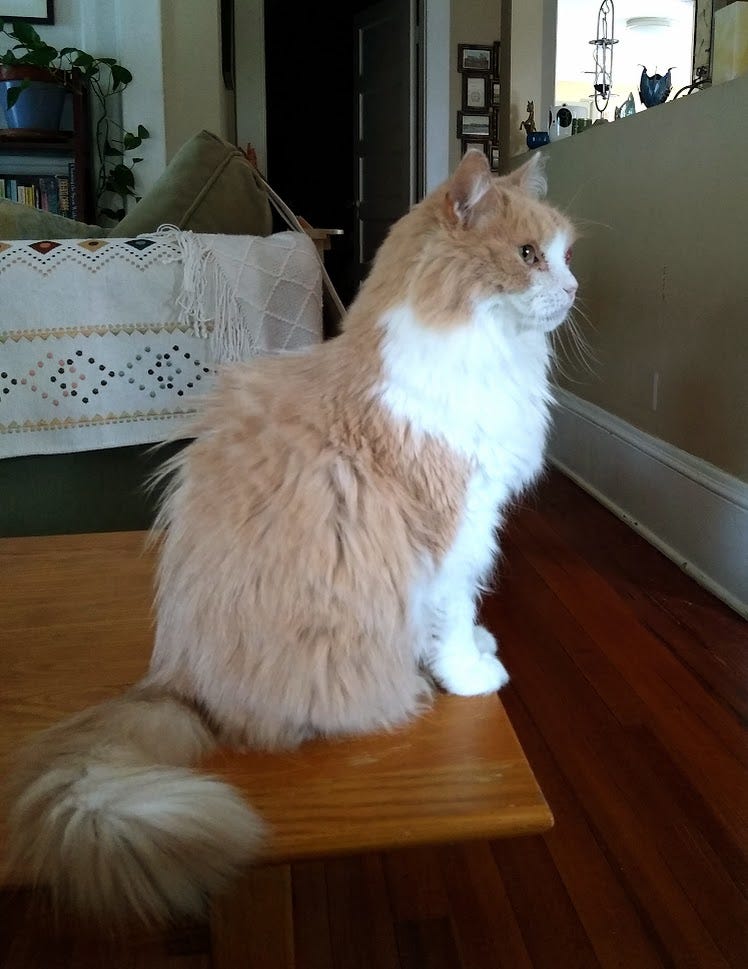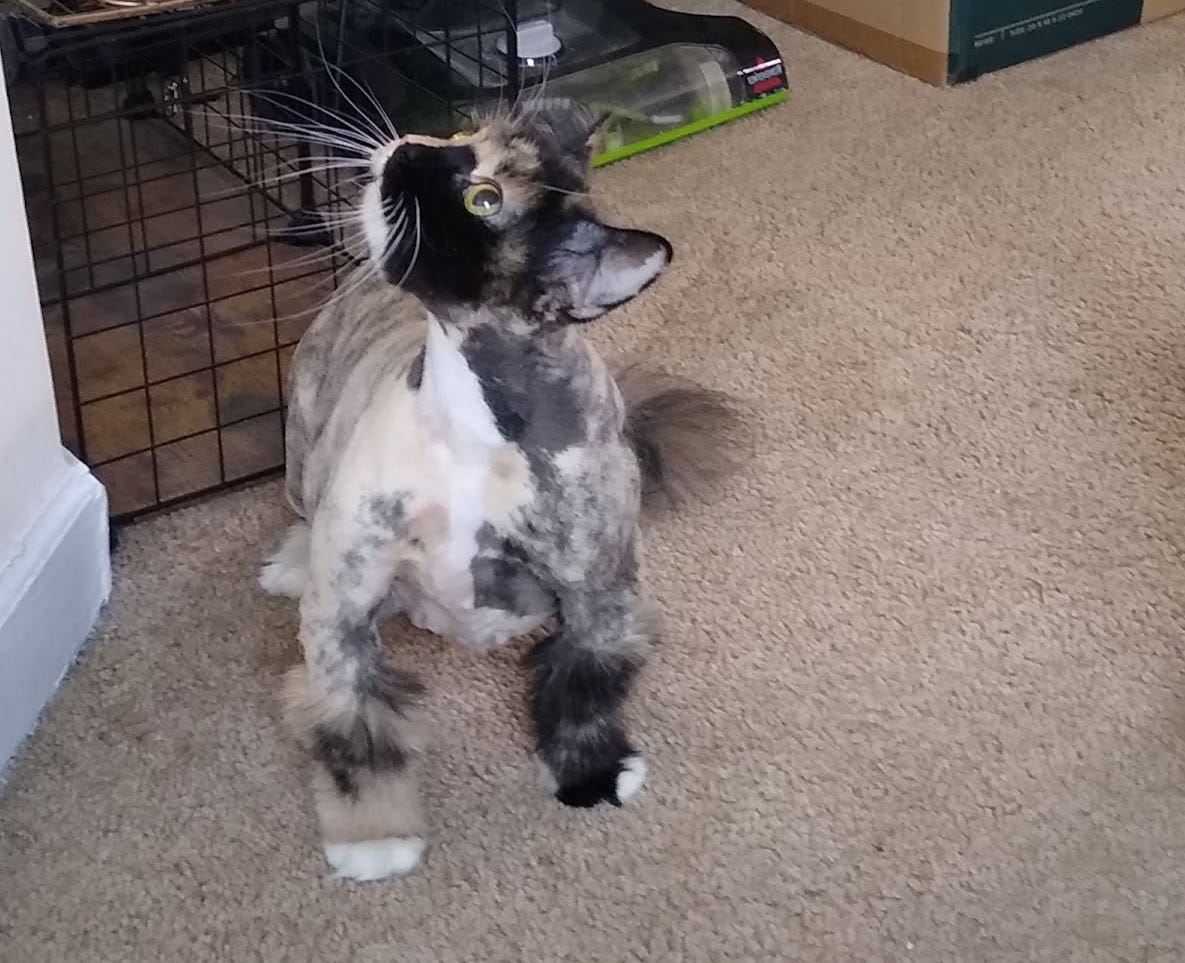What does poetry have to do with our losses, either personal or collective? On rough seas, if we’re lucky, our life raft is full of friends, family, and compassionate caregivers. Staying afloat requires constant practical attention: Shift to balance the load. Share provisions. Plug that leak with a wad of chewing gum. Gently lower a lost friend to the Deep.
But a spectral life raft holds us up, too: whether cultural or spiritual, rescue lies in whatever keeps our thinking hearts afloat.
In the last entry of her diary, Etty Hillesum wrote:
I always return to Rilke. It is strange to think that someone so frail and who did most of his writing within protective castle walls, would perhaps have been broken by the circumstances in which we now live. Is that not further testimony that life is finely balanced? Evidence that, in peaceful times and under favorable circumstances, sensitive artists may search for the purest and most fitting expression of their deepest insights so that, during more turbulent and debilitating times, others can turn to them for support and ready response to their bewildered questions?
Etty carried her battered copy of Rilke’s poems on the cattle car to Auschwitz. The guards would have snatched her rucksack away, but I don’t think it mattered; a lifetime of reading was already in her head. Poetry had helped her gather her inner strength to face what was coming, and I think it must have helped her even in the hell of a concentration camp. A witness described her as “luminous” to the end. She was 29. I wonder, if she had lived—if she had had the option to grow old—what works would have sustained her in later years.
That heavy introduction may capsize my small reflections about a cat (or three) and a poem. My losses are the natural human ones: parents, friends, pets, my own youthful optimism. (Cancer feels profoundly unnatural and wrong, but there it is, touching all of us.) I’ve felt buoyed by my own battered copy of Rilke’s poems and countless other works of literature. After losing my beloved P.B. and impulsively taking in another “rescue cat” last week, I thought of a poem that I first read in college: Galway Kinnell’s “Saint Francis and the Sow.”
The bud
stands for all things,
even for those things that don’t flower,
for everything flowers, from within, of self-blessing;
though sometimes it is necessary
to reteach a thing its loveliness,
to put a hand on its brow
of the flower
and retell it in words and in touch
it is lovely
until it flowers again from within, of self-blessing…
As an awkward teen, I needed a lot of help flowering. Self-blessing took much longer. Decades later, Kinnell’s poem speaks to me in a different way, and even more surprising, I find myself speaking back to it.
P.B.’s home-visit vet came to help him pass. I stumble over the euphemism. My heart says he took a journey and still reaches toward him on a stretched tether; my brain knows nothing, except that the language of a journey comforts me. The choice haunts me: I still don’t know if my main motivation was to spare P.B. further pain or to spare myself the witness of his pain. But both his vets agreed it was time. We all cried.
P.B.’s friend Marcel was also clearly bereft. Who would galumph around the apartment with him late at night? Who would sit at the sliding door early in the morning to watch squirrels? Who would chase those fake-fur mousies down the stairs and leave them in an ignominious heap by the door?
So I considered a new feline family member sooner than I normally would. A friend who takes “please adopt me!” photos of the animals for the local SPCA noted it’s kitten season: the shelters are overflowing with big-eyed, fluffy babies. After a few days of mourning, I peeked at the listings. It was true: there were kittens galore. Marcel would have fun with a kitten, I thought, though he might be as overly enthusiastic as the abominable snowman in old Looney Tunes cartoons: I’ll hug it and I’ll squeeze it and I’ll name it George. After only three years with P.B., who had arrived in distress shortly after the passing of my cat-soulmate Sophie, I could have a pet with a long life ahead of it. But that’s not what happened. That’s not who showed up.
Ani appeared first on my screen, a closeup of a beautiful calico face that could’ve been Sophie’s cousin. At 8 years old, she’d been surrendered to—that is, somebody dumped her off at—a crowded local shelter. They do the best they can with limited space and resources, but oh my God, the noise and smell of that place. Ani was so freaked out that the shelter vet had put her on a high dose of fluoxetine, a.k.a. Prozac. It’s grimly ironic that she had to be heavily drugged to endure her sheltering. When I saw her profile, she’d been stuck there for three months. I went to meet her, but she was so distressed from an earlier vet appointment that the workers couldn’t even get her out of her cage to bring her to the “Meet and Greet” room. I waited for 20 minutes, breathing shallowly through my mouth. I couldn’t sleep that night. The next morning I said F*&#! it. I insisted on picking Ani up the next day. We would get acquainted in the peace and quiet of my spare attic room.
But first, I had to wait in another smelly corner. I sat next to an elderly woman who’d brought her cossetted little dog for the vet to examine a bump on his tail. She seemed happy to have someone to talk to. She complained about the cost of veterinary care at other places (while I thought to myself that it was worth every dollar). We agreed wholeheartedly that we couldn’t get our minds around people who abandoned animals. Pets were family. Her dog camped out under my battered plastic chair, probably because I was closest to the wall.
Then one of the volunteers lurched out of the back room with my pet carrier. Weighing it down was a cross between a tiny-headed lion and a mottled, overstuffed sausage. They’d told me she was scheduled for a “sedated grooming,” but what the hell?! Never mind. With a sigh of relief, I spirited—I mean lugged—Ani out of there.
She spent most of the first day under the attic bed. When I came into the room, she’d emerge with a wail and scarf down some food, as if she needed me to stand sentinel by the bowl. Then she’d flop down on the floor against my leg, purr for a moment, hiss if I petted her for too long, and dash back under the bed. I loved her almost instantly: this little nervous creature had bundled up all my grief in a ball, licked it, and then batted it back to me as ridiculous joy.
Two days later, she roams the room boldly, purrs when I come in, and yowls indignantly when I leave. Marcel looks only a little worried when he catches the scent of his new roommate. I’ll wait a few more days to introduce them. Meanwhile, I’m tapering Ani off the Prozac. Her distress was situational; now she’s just her weird little self. She no longer needs a chemical lifeboat.
Mr. Kinnell (R.I.P.), here’s the thing: St. Francis didn’t teach the sow anything. We human beings may need to relearn our loveliness—and learn to see others’—but animals never forget. They live their poignantly short lives as whole bodymindhearts. All they need is a space in which to be as they are. Cats, who long ago domesticated us, intertwining their well-being with ours, appreciate a room to share, head scratches, good food, and clean water. What a small price for joy.
Once again, I’ve had the good luck to be rescued and retaught.
Safe travels, P.B. Chase those mousies up the astral stairs.






I’m reading late (again!), but sending hugs. So sorry about P.B. ❤️ Saying goodbye is never easy. Sounds like Ani arrived just when you needed each other.
They bring their true selves, no duplicity, no guile. They then precede us into the great beyond, leave us bereft of their company. The only thing to do is to find a new one to serve, as you did.